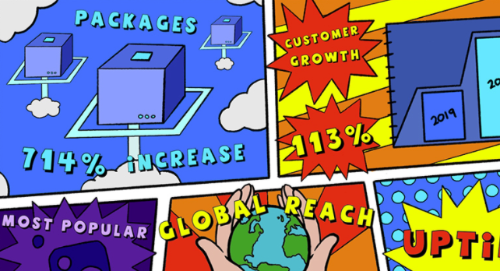
Missing Infrastructure: Accelerated Worldwide Delivery

Software development by distributed teams is nothing new. But since 2020, it’s no longer just teams that are globally dispersed, it is the individual team members themselves. Remote working is the new normal. So in this unpredictable, “modern” world we’re in, how do you put together a solution that delivers for every single team member, no matter their location?
How do two (or more) people work together on the same project, if availability times for integration and deployment have different latency due to old thinking, old infrastructure limited due geographic locations. If a package containing a crucial bug fix takes nearly 15 minutes to replicate from San Francisco to London or Tokyo, it severely hampers rapid rollout of fixes - something that could potentially affect the bottom line of your business.
Organizations have been grappling with the challenges that distributed teams present for some time now, and many different tools and services were created to lighten this burden.
Take source control, for example. Organizations were quick to embrace distributed version control systems, and then went one step further when they shifted these to the Cloud. CI/CD build pipelines are no different, having moved from on-prem build servers to - you guessed it - the Cloud.
But these only solve some of the problems that distributed teams face. What about artifacts and package management?
Historically, one solution was to stand up an on-prem package management system, either as an instance in an organizations’ cloud or a physical server. But in the changing landscape now, this isn’t a great fit anymore. How do you ensure secure, performant access for every member of your distributed development teams? What about redundancy, backups, and high availability?
You may need to stand up many instances around the globe, in many regions - dealing with VPNs, replication, clustering, CDNs etc. Pretty quickly, you’ll probably need a full-time administrator, or a dedicated team to manage this. Costs here quickly spiral, both in terms of the infrastructure you need, the licenses for the software, and the dedicated personnel.
The Future
As with other components of the software development and delivery process, it's time for package management to move to the Cloud also, just like source control and CI/CD pipelines. You can reduce your total cost of ownership and at the same time, deliver a better solution for your teams. We believe this passionately, so we created Cloudsmith - a universal, web-scale package management system.
With Cloudsmith, you get:
- A fully distributed platform. Cloudsmith has been architected from the ground up to deliver best-in-class performance no matter where in the world you are. Multi-region, and backed by a global CDN. We have worked extremely hard to build a reliable, performant platform. Our reputation, and that of our customers, depends on it.
- A fully managed service. You don’t need to be an administrator of the platform, it’s all fully managed for you, 24/7. One of our customers put it very succinctly when they switched to Cloudsmith: “We don’t want to be Sys Admins”. We are also here to provide support anytime you need it; our engineering team works closely with our customers to ensure that they get the very best possible value from Cloudsmith.
- Secure by default. One of our core principles is security; you could almost say we are obsessive about it: fine-grained access controls, multi-factor authentication, event and access logs, and an extensive permission system. We are proud to say that we have never failed a security assessment by one of our customers.
- Universality. With support for 24 package formats at present, and more being added all the time, you can simplify and centralize your package management. Also, with our multi-format repos, you can add all your package formats into the same repos; there are no restrictions on how you structure your repos.
Distributed teams aren't new, but for the post-2020 world, their automated workflows need to be much better for their distributed team members. A fully cloud-native package management solution is now an essential component for modern workflows.
More articles


Cloudsmith, the JFrog Bintray Alternative & Replacement

"Build It Yourself, They Said. It Will Be Worth It, They Said" Dev Week Enterprise Keynote Session

Getting Started with Docker and Cloudsmith

Integrating a Cloudsmith repository with a CircleCI pipeline
